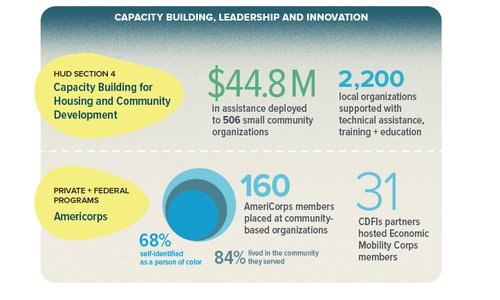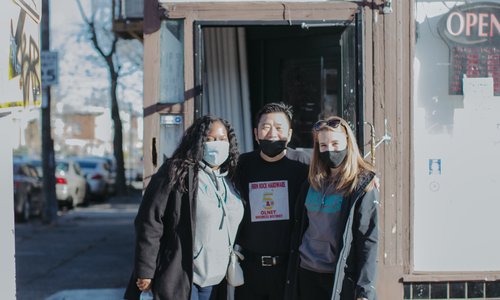Matt Josephs

LISC Op-Ed: Syracuse, NY Affordable Housing Pilot Shows the Power of Federal Tax Credits
In a recent opinion piece for the Syracuse Post Standard, LISC New York Senior Executive Director Valerie White and LISC Senior Vice President for Policy Matt Josephs highlight how federal tax credits are being leveraged to address housing shortages in Syracuse. These kinds of public-private partnerships are enabling local developers to construct affordable homes, revitalize neighborhoods, and provide essential housing options for residents. The expansion of such credits nationwide, moreover, including through the Neighborhood Homes Investment Act, can help close the gap between construction or renovation costs and home value to mitigate the housing cris

With the Updated CRA in Limbo, What Comes Next?
LISC’s Matt Josephs takes a look at the long-awaited modernization of the Community Reinvestment Act (CRA), calling it "fair, workable and strong." But he also warns of the chilling effects of uncertainty, as a legal challenge stalls implementation of the final rule, and offers a series of next steps for banks, regulators and community development practitioners. "Right now, it is critical that we maintain the momentum around CRA,” he writes.

Strong Support for Communities in the 2024 State of the Union
LISC’s Matt Josephs reflects on this year’s State of the Union speech, taking particular note of the president’s comments about affordable housing, child care, climate solutions and community safety. "Taken as a whole, the speech offered a strong and hopeful statement of purpose,” Josephs said, adding that it will take sustained leadership at all levels "to translate promising ideas into on-the-ground progress for families and communities.”

Federal Programs in Action: How Funding Fuels Social and Economic Gains
In a new blog, LISC’s Matt Josephs connects the dots from community development policy discussions to actual funding streams, highlighting positive local outcomes that would not otherwise move forward. "It would be nearly impossible to unlock the tens of billions of dollars of private financing needed each year to scale up progress without strong federal support,” he writes. "We are grateful for the confidence federal agencies have shown in LISC and others in the community development finance field…"

A Playbook for Our Future: LISC Unveils Its 2023–2024 Policy Priorities
Strong public policies have always been critical to promoting affordable housing, economic development, health, and jobs. The urgency surrounding these issues remains ever-present. LISC SVP for Policy Matt Josephs zeroes in on the goals of LISC’s federal policy agenda in a blog highlighting proposals that tackle gaps in health, wealth and opportunity affecting millions of families and their communities.

SOTU Offers Positive Outlook for Community Development, Inclusive Opportunities
Matt Josephs, LISC senior vice president for policy, offers his take on the president's State of the Union address and how it connects to key efforts to expand economic opportunity throughout the country. “Whether we are investing in affordable housing, child care centers, recreational facilities or small businesses, the idea of breaking down barriers to opportunity is a constant.”

Affordable Housing Loss Grows as ‘Qualified Contracts’ Sap Thousands of Housing Credit Units
LISC is pressing Congress and state housing officials to address the troubling effects of QCs, which reduce the amount of rental housing that is available to families with low incomes. " As a country, we can’t afford to let that continue,” write LISC’s Matt Josephs and Michael Skrebutenas, in a new commentary on the issue. "We can’t afford to subsidize affordable housing development for public good only to watch it slip away for private windfall."

A Place-Based Approach for Advancing Equity through the Economic Development Administration
As Congress looks to reauthorize the Economic Development Administration (EDA) for the first time since 2004, LISC’s Matt Josephs and Michelle Harati take a look at new bipartisan legislation that offers a place-based approach to expand equitable access to EDA resources.

Building from the Bottom Up and the Middle Out: Biden Speaks to the Nation on Opportunity, Equity and Growth
Matt Josephs, LISC senior vice president for policy, takes a look at the president’s State of the Union address and what it might mean for efforts to bridge gaps in health, wealth and opportunity throughout the country.

Congress Must Seize the Opportunity to Make Equitable Investments in People and Places
The Build Back Better Act is a sweeping package of investments to support underserved people and communities. LISC’s Matt Josephs takes a closer look at this historic opportunity for Congress to break down systemic barriers for people of color, while at the same time fueling an equitable economic recovery from the pandemic.